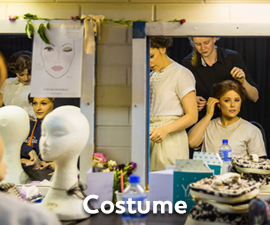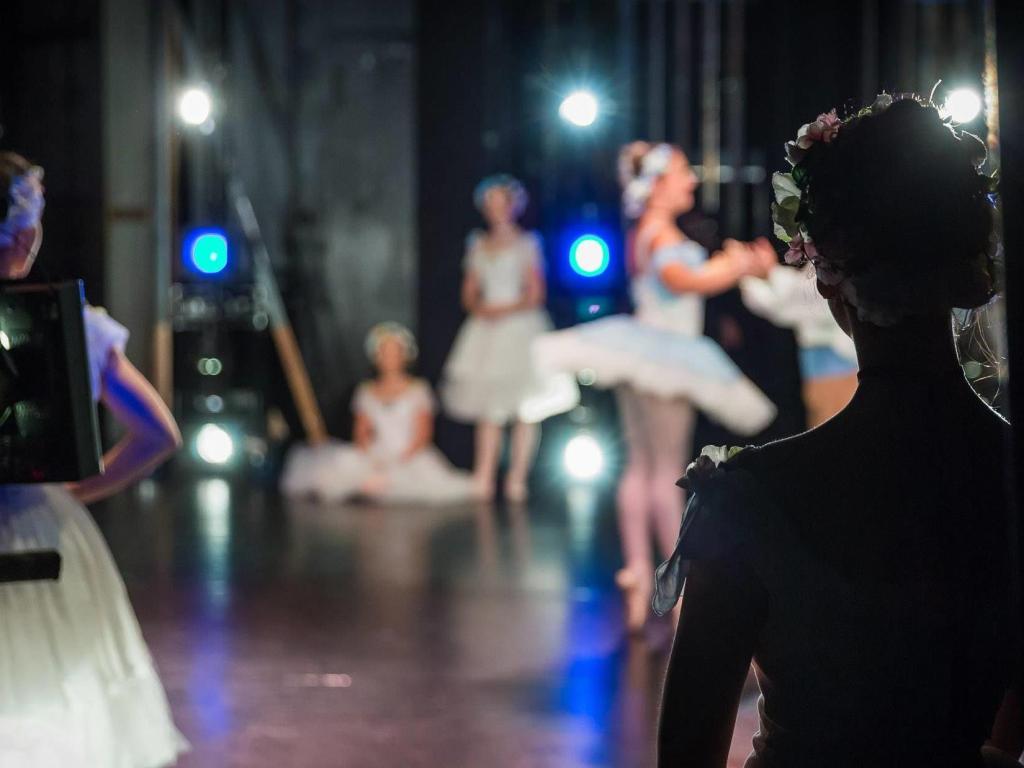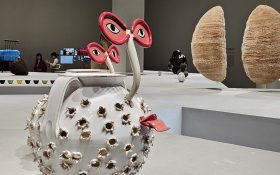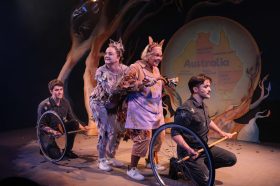Image: Stephen Heath Photography.
‘We really focus on different specialisations. It’s not the “generic” arts course,’ said Leisa Landre-Ord, Associate Dean Production at the Western Australian Academy of Performing Arts (WAAPA).
The focus on specialist training within areas of performance, production and design, and arts management is what sets WAAPA apart from other education providers in Australia.
‘In Production and Design for example we don’t have a general technical area, instead we have Design for Set and Costumes, we have Costume Construction, we have Lighting — which is all about lighting for live theatre and events. The same goes for our dedicated Stage Management, Sound, Props & Scenery courses. The students are very highly skilled and 100% work ready in their area of specialisation when they graduate,’ said Landre-Ord.
Because WAAPA doesn’t combine multiple disciplines into a single three year degree program, students are able to specialise in one area — which, Landre-Ord pointed out, is what is required in the industry as it comes with a high level of skill.
‘We have the specialisations so students can just immerse themselves in their area of study for three glorious years. It is not often that you have that luxury.’
Assoc. Prof Andrew Lewis Smith also said the specific focus of degrees at WAAPA is responsive to the competitive nature of the arts sector — it is a strategy that graduates dedicated specialists that are work-ready.
‘The industry is so tough, whether you trained or didn’t — it is competitive…If it is going to be that competitive in the industry, it has to be competitive in the training. That’s why at the end of the year when we showcase, we go to every city, every state and audition [students].

Image: supplied.
‘For the Bachelor of Music Theatre we audition over 450 people for twenty places and for Acting it is close to 700 auditions for eighteen places. It is very competitive to get in.’
But entering a specialised degree means you have to know what you want. Fortunately, there are also pathways available to help a student figure that out along the way. ‘What we are doing now is offering a raft of different diploma courses between high school and entry into our conservatoire program,’ said Lewis Smith.
Students can enroll in a Vocational Education and Training (VET) courses at Certificate, Diploma and Advanced Diploma levels, with no ATAR required — which offer pathways to further learning or allow students to graduate with a nationally recognised qualification. On successful completion of a Certificate, Diploma or Advanced Diploma, students may audition for other courses within WAAPA.
To find out more about WAAPA, please visit www.waapa.ecu.edu.au





